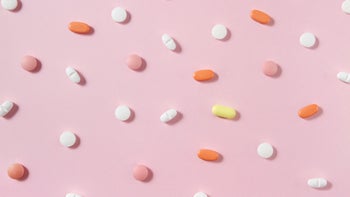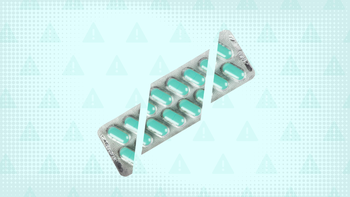
How Long Risperidone Takes to Kick In (Plus, Answers to 4 More Risperidone FAQs)
Key takeaways:
Risperidone (Risperdal) is an atypical antipsychotic. Oral forms of risperidone may start to kick in within 1 to 2 weeks, but injectable forms take longer. All forms of risperidone can take several months to be fully effective.
Risperidone can be taken with or without food. It can cause drowsiness, but taking your dose at bedtime can help limit daytime drowsiness.
Risperidone is available as a lower-cost generic. GoodRx may be able to help you save over 80% off the average retail price at certain pharmacies.
Access savings on related medications
Table of contents

Risperidone (Risperdal) is an atypical antipsychotic medication for children and adults. Its FDA-approved uses include treating schizophrenia, bipolar disorder, and irritability associated with autistic spectrum disorder.
Risperidone comes in different dosage forms. The oral tablet is a popular option. But the medication is also available as an oral liquid, a dissolvable tablet, and a long-acting injection (Risperdal Consta, Rykindo, Uzedy, Perseris).
If you or a loved one is just starting treatment with risperidone, you’ll likely have questions about the medication. Keep reading as we answer five frequently asked questions, including how long it takes for risperidone to kick in.
1. How long does risperidone take to kick in?
Some effects of risperidone may kick in right away. Drowsiness is a common side effect that you may feel with each dose, including your first. This can be beneficial if the condition you're treating makes it hard for you to fall or stay asleep.
Some people also find that their aggression is calmed shortly after taking a dose of risperidone. But it’s unclear from current research as to whether the medication is effective for this use.
Other symptoms — like hallucinations, delusions, or lack of motivation — may start to improve within 1 to 2 weeks of starting treatment with oral risperidone. For injectable forms, like Risperdal Consta, the medication won’t fully enter your system until 3 weeks after your first injection.
It may take 2 to 3 months for you to experience the full effects of risperidone. If you’re not feeling any improvement within a few weeks, though, let your healthcare provider know. They may want to raise your risperidone dosage.
2. How long does risperidone stay in your system?
How long risperidone stays in your system depends on multiple factors, including the dosage form. For oral dosage forms, one risperidone dose can take up to 6 days to leave your system. But, when taken regularly, the medication’s effects only last for about 1 day.
Older adults and people with kidney or liver problems tend to clear risperidone from their bodies more slowly. And genetic differences can cause some people to clear risperidone quickly and others to clear it more slowly. Based on how your body responds to the medication, your healthcare provider may recommend that you take oral risperidone once or twice a day.
The long-acting injectable versions of risperidone are given every 2 weeks or once a month. These versions can stay in your system from a few weeks to more than a month. Injectable options can be convenient because you don’t have to take a pill every day. And, for this reason, they can help you stay on track with your medication.
3. What’s the best time to take risperidone?
If you’re taking risperidone twice a day, you’ll likely take one dose in the morning and one in the evening. But if you’re only taking it once a day, taking it at certain times of day can help you manage sleep-related side effects.
As mentioned above, drowsiness is a common side effect of risperidone, especially at higher dosages. For this reason, it might be best to take your dose before bed if you take the medication once a day. This can help reduce the amount of daytime drowsiness you experience.
But some people may experience the opposite effect and have trouble sleeping when taking risperidone. If this is the case for you, taking a once-daily dose in the morning might be the best way to ensure you get a good night’s sleep.
Certain lifestyle changes may also help you manage sleep-related side effects. For instance, you can try eating foods that may boost your energy levels during the day, such as strawberries and green, leafy vegetables. Other foods, such as pistachios and tart cherries, may help promote a good night’s sleep.
Consider the following tips to help optimize your sleep routine, as well:
Avoid eating big meals before bed.
Sleep in a cool, dark room.
Stick to a consistent bedtime.
If these changes don’t help, talk with your healthcare provider about splitting up your daily risperidone dosage. Sometimes, taking two, smaller doses per day may help lessen drowsiness, compared to taking a larger, single dose. Your provider might also consider lowering your risperidone dosage to help you stay more alert during the day, if needed.
4. Should you take risperidone with food?
Oral risperidone can be taken with or without food. If the medication is causing you nausea or indigestion, taking your dose with food can help. Taking the medication with the same meal every day is also a good way to remember your doses.
There aren’t any foods you need to specifically avoid when taking risperidone. But if you’re taking risperidone oral solution, avoid mixing it with coffee or tea, as these beverages aren’t compatible with the medication.
5. Does risperidone cause weight gain?
Yes, risperidone can cause weight gain. But that doesn’t mean everyone who takes it gains wait. Each person’s experience is unique.
Many antipsychotic medications can cause weight gain because they cause the body to process sugars and fats less efficiently. Over time, this can raise the risk of Type 2 diabetes and high cholesterol. Risperidone has a moderate risk of weight gain. That means there are some antipsychotics that carry a greater risk of weight gain than risperidone, and others that carry a lower risk.
Clinical studies from the manufacturer showed up to 21% of adults taking oral risperidone gained 7% or more of their starting body weight during the first 8 weeks of treatment. In these studies, higher dosages were linked to more weight gain. And studies involving children found a higher-than-expected rate of weight gain with oral risperidone. Weight gain was also reported in studies of injectable risperidone forms.
Weight gain typically occurs during the first 6 months of treatment with antipsychotic medications. But for some people, weight gain continues beyond this point.
Talk to your healthcare provider if you notice changes to your appetite or weight while taking the medication. They can suggest ways to help limit weight gain from risperidone, including following a healthy diet and exercising regularly. Or your provider may recommend that you switch medications or add a new medication to your regimen to help promote weight loss.
How can you save on risperidone?
There are many ways to save on risperidone, which is available as both a brand-name and a generic medication:
Save with GoodRx. GoodRx may be able to help you save over 80% off the average retail price of generic risperidone. Generic risperidone’s price at certain pharmacies may be as low as $9.00 with a free GoodRx coupon.
Save with a copay savings program. If you have commercial insurance, you may be eligible to pay as little as $10 for Risperdal Consta, or as little as $5 for Perseris, using a savings card from the manufacturer.
Save with patient assistance programs. If you’re uninsured or underinsured, you may be eligible for Risperdal Consta’s patient assistance program, which offers the medication free of cost.
The bottom line
Risperidone (Risperdal) is an atypical antipsychotic that can treat a few mental health conditions. Oral risperidone may kick in within 1 to 2 weeks for certain symptoms. But it can take 2 to 3 months to be fully effective.
Risperidone can be taken with or without food at any time of the day. But some people find taking their doses at certain times helps combat sleep-related side effects.
Risperidone may cause some weight gain over time. Talk to your healthcare provider if you notice a change in your weight or if your symptoms aren’t improving several weeks after starting treatment with risperidone.
Why trust our experts?



References
American Psychiatric Association. (2020). Practice guideline for the treatment of patients with schizophrenia.
Dayabandara, M., et al. (2017). Antipsychotic-associated weight gain: Management strategies and impact on treatment adherence. Neuropsychiatric Disease and Treatment.
Hakami, A. Y., et al. (2022). The association between antipsychotics and weight gain and the potential role of metformin concomitant use: A retrospective cohort study. Frontiers in Psychiatry.
Janssen Pharmaceuticals, Inc. (2021). Risperdal Consta - risperidone [package insert].
Janssen Pharmaceuticals, Inc. (2022). Risperdal - risperidone tablet [package insert].
National Alliance on Mental Illness. (2023). Risperidone (Risperdal).
Ostinelli, E. G., et al. (2018). Risperidone for psychosis-induced aggression or agitation (rapid tranquillisation). The Cochrane Database of Systematic Reviews.
Poulin, M. J., et al. (2007). Management of antipsychotic-induced weight gain: Prospective naturalistic study of the effectiveness of a supervised exercise programme. Australian & New Zealand Journal of Psychiatry.
RemedyRepack Inc. (2023). Risperidone - risperidone solution [package insert].
Was this page helpful?
Related Articles
Browse medications
View AllResearch prescriptions and over-the-counter medications from A to Z, compare drug prices, and start saving.





















